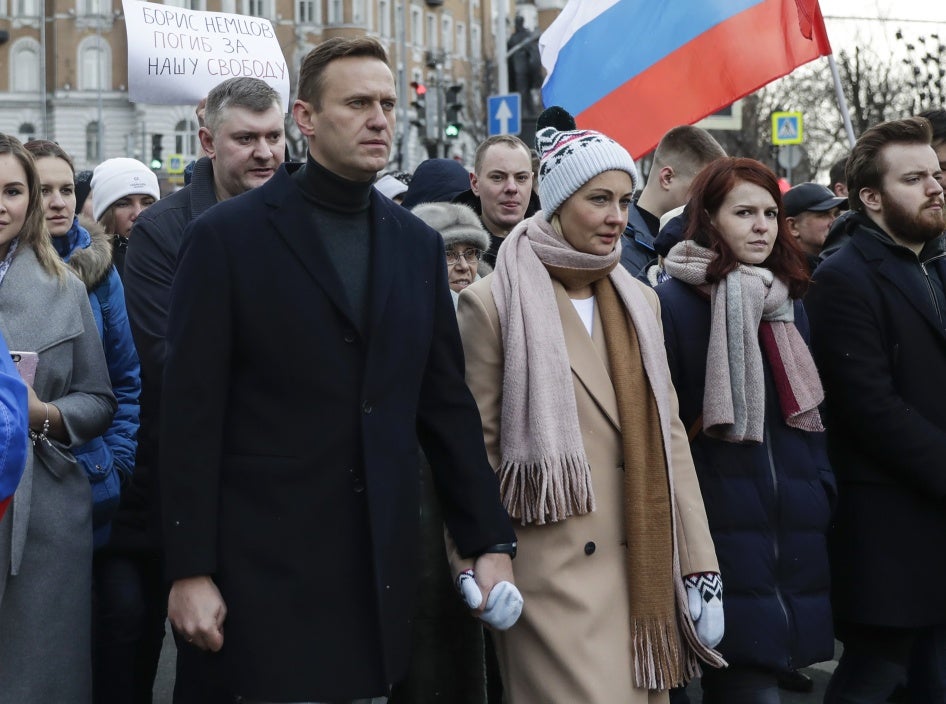(Berlin, February 16, 2024) – The Kremlin bears responsibility for Russian opposition leader Alexei Navalny’s death in prison, Human Rights Watch said today. Russia’s state prison service said in a public statement on February 16, 2024 that Navalny had lost consciousness and could not be resuscitated.
“For more than a decade the Kremlin persecuted, imprisoned, and tormented Navalny,” said Tirana Hassan, executive director at Human Rights Watch. “He should never have been in prison, in the first place. The Russian authorities bear full responsibility for what has happened to Navalny, starting with his first politically motivated arrest.”
Navalny, 47, had been serving a prison sentence on numerous trumped-up charges when he was sentenced in 2023 to 19 years on a new set of charges, including extremism. It was a thinly veiled move to ensure that he remained incarcerated and isolated for the foreseeable future, Human Rights Watch said.
Navalny had been behind bars since he returned to Russia in 2021, following medical treatment after surviving a 2020 poisoning attempt, which many attributed to the Kremlin.
Prison authorities sent him to various punishment cells for most of the time he was in custody, including in recent days.
Navalny had defied the Kremlin’s efforts to intimidate him and to crush political opposition, Human Rights Watch said. He refused to live in exile and used court hearings against him as an opportunity to witheringly criticize the Kremlin’s repression in Russia and the war against Ukraine. At a court hearing held in prison on February 15, Navalny said that the numerous fines imposed on him were depleting his finances.
Russian authorities have also targeted many of Navalny’s allies, supporters, and even his lawyers, who are either in prison or facing criminal charges, in addition to other rights violations,.
The European Court of Human Rights issued numerous judgments that Russian authorities had violated Navalny’s right to liberty and security, fair trial, as well as freedoms of expression and association and that his rights had been violated for political purposes. It also found that Russia had failed to carry out an effective investigation into Navalny’s poisoning.
Under international law, as reinforced by the UN Human Rights Committee and the European Court of Human Rights, states have obligations to exercise a “duty of care” to anyone in custody, and all deaths in custody must be effectively investigated in an independent and thorough process, and those responsible held to account.
Russia’s state prison service has said that it had sent a medical commission to the penal colony in the Yamalo-Nenets autonomous region, where Navalny was serving his sentence. The local branch of Russia’s state criminal investigation service has stated it would conduct a “procedural inquiry” into Navalny’s death.
A spokesperson for Navalny has not yet confirmed his death and has said his lawyer is flying to the prison colony. She said she will not comment further until she has more information.
“A long list of people bear responsibility for Navalny’s persecution and ultimately his death, and we need to work to hold each and every one of them responsible,” Hassan said. “What the authorities should do is drop all baseless cases against his supporters, vacate their convictions, and repeal each repressive law that has facilitated them.”
Human Rights Watch wishes to extend its sympathy to his family and loved ones.








